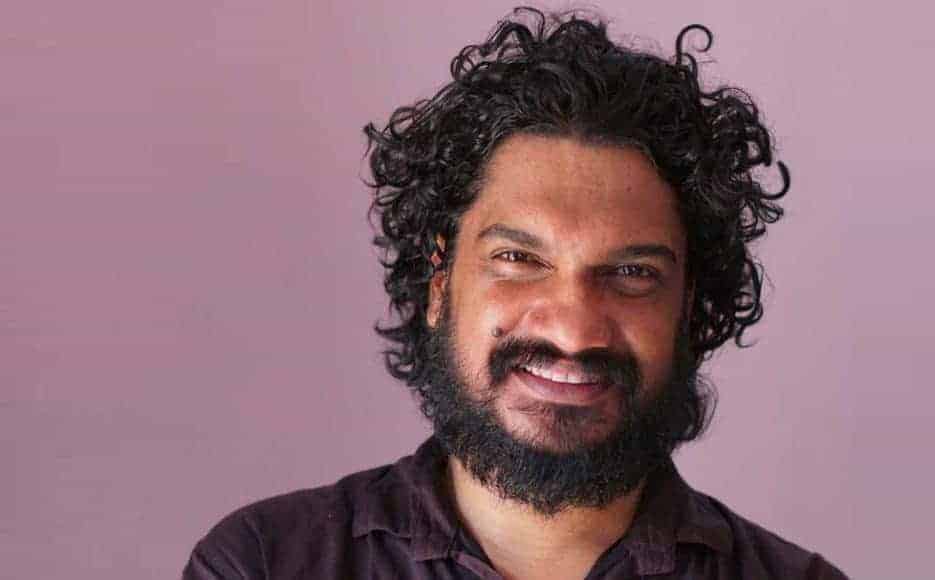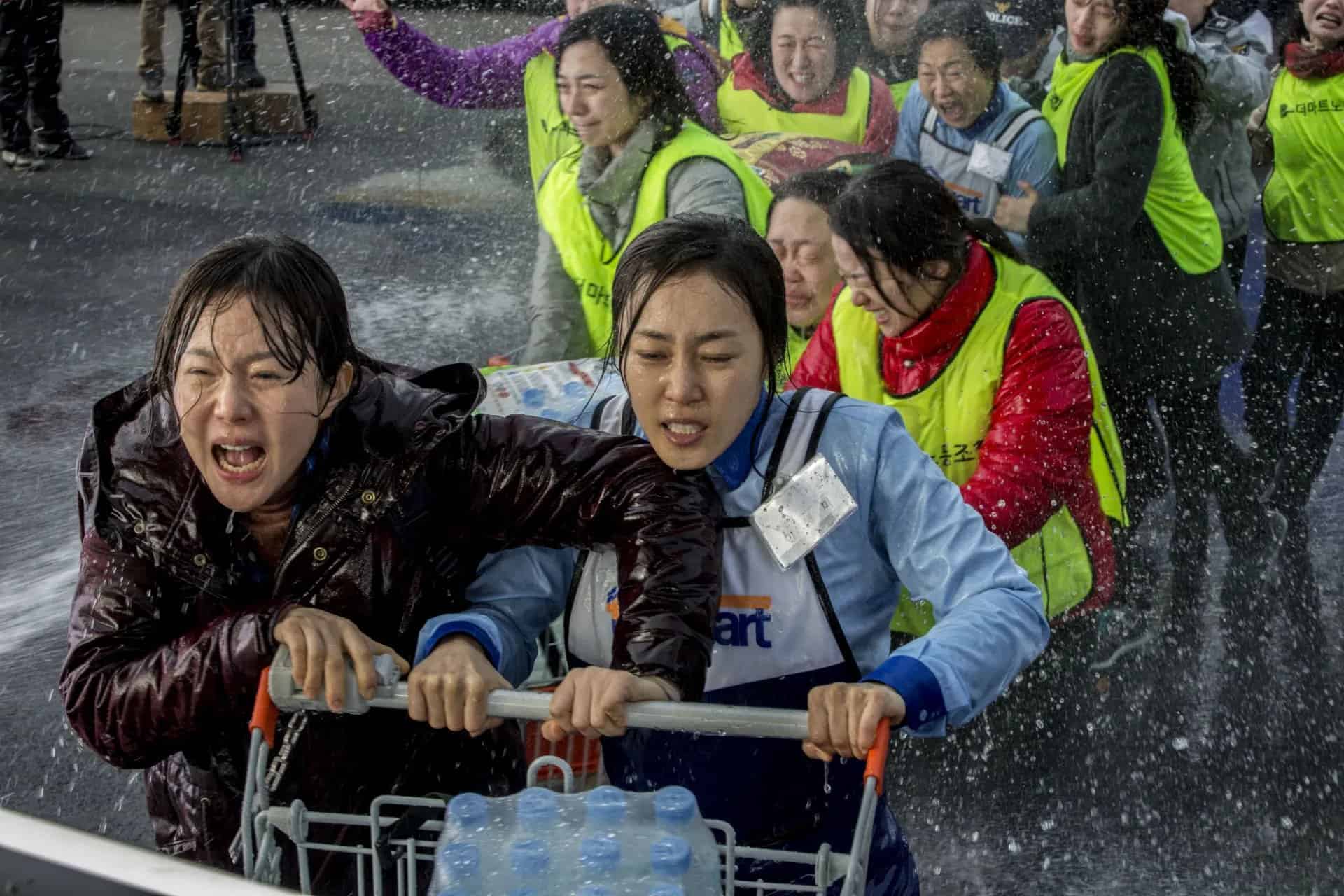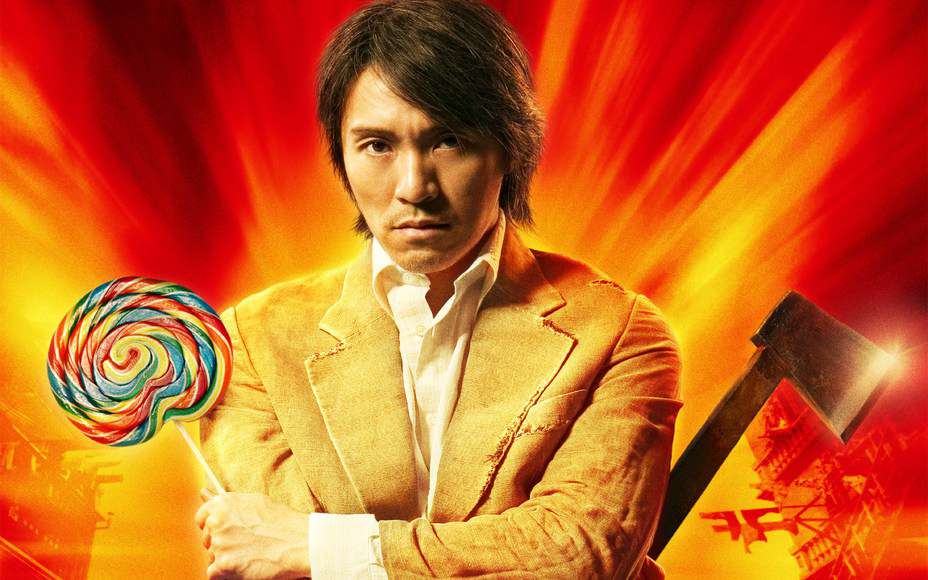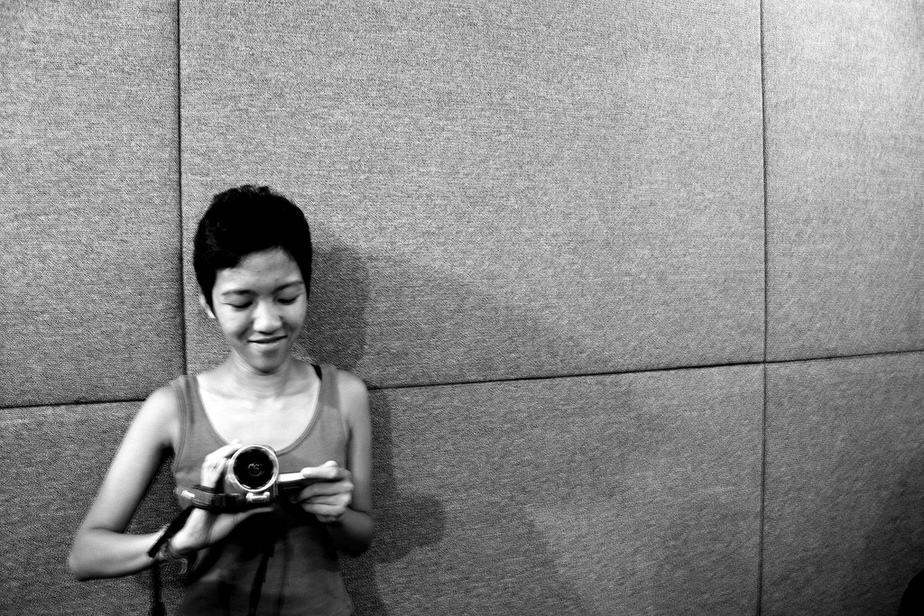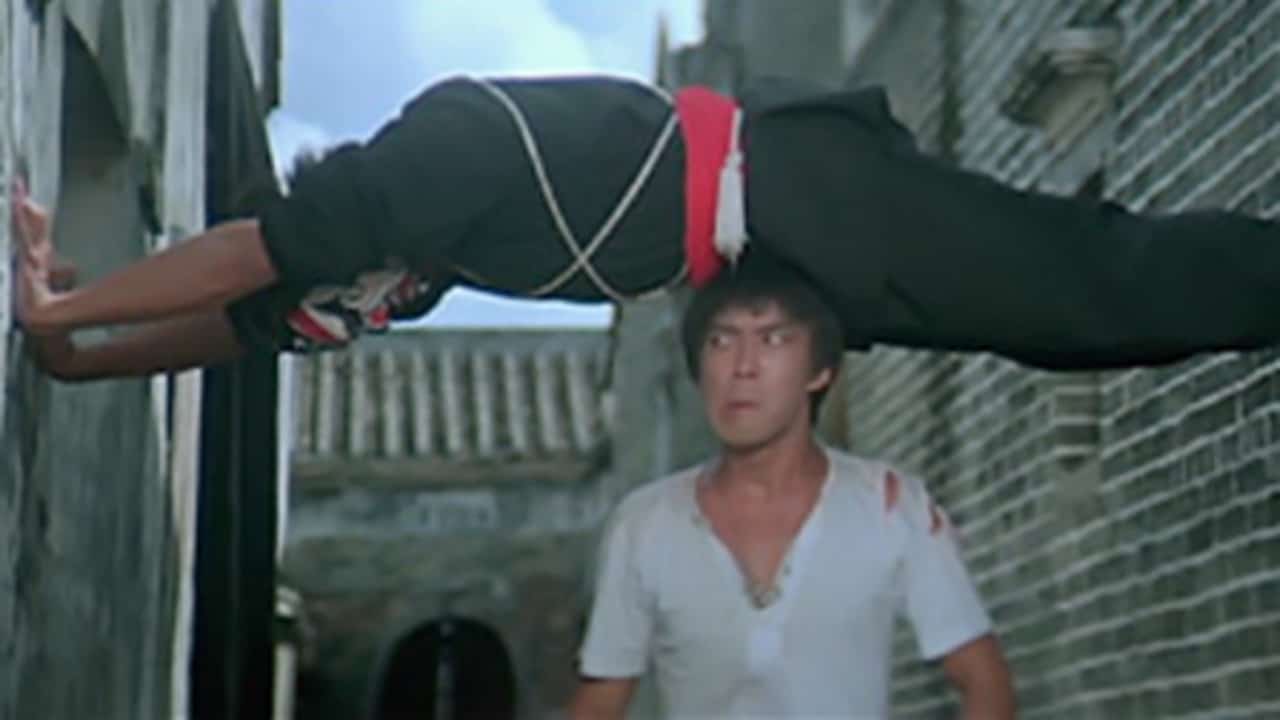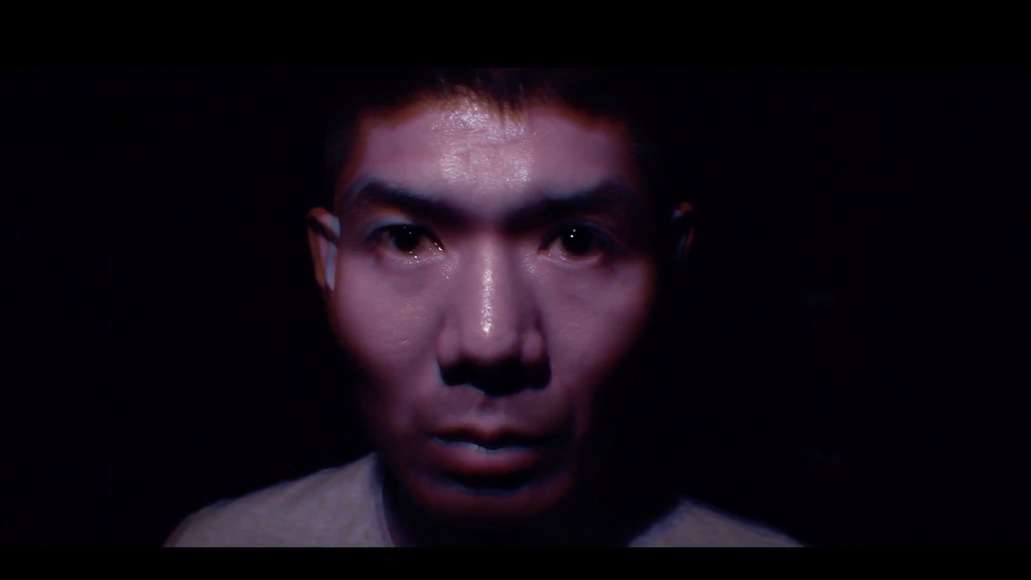The interview was initially published on Umbra (umbra.lightcube.in)
Congratulations on winning the Hivos Tiger Award. This is your third film, and it is quite a streak. How did you get into filmmaking?
Thank you. To be honest, from the moment I started thinking about my purpose, I thought of a profession that gave me not just money but also a little dignity, like a doctor or an engineer. My father was very eager for me to become a doctor, but he was also an ardent fan of films. He used to take us to the theatre near our village almost every Friday to watch a new film. We were a poor family, with my father as the only earning member, yet he would manage to take us to the theatre. I remember watching my first film at the age of three.
I later expressed my interest in films, but that upset him so much that he suddenly stopped going to watch films. He really wanted me to become a doctor since I had polio. His experiences with the doctors at that time made him think highly of the profession. As I grew up, in school we played some games, enacted some movie scenes, and I was convinced of becoming a filmmaker by the time I left high school. This led to some troubles with my father, and he made me take the medical entrance exams which I failed. He told me to write the exams again, and I got into a degree college promising him that I would write the exams again the next year. So three years passed and I was a graduate who couldn't pass the medical entrance, after which I told him that I was going to Pune to learn filmmaking, which infuriated him. He asked me to leave and never return home. I was scared and not confident if I could survive alone without my family's support. So I changed my plans and decided to study law just so that I could get some job, and perhaps when I was more confident, pursue filmmaking. I told my father about becoming a lawyer, and he was almost okay with that.
While I was studying, I was also thinking about making films, and by the time I was in my final year in law college, I went to assist a filmmaker on his film so that I could learn. It was my first film as an assistant, and it turned out to be his last film. It was called Mankolangal. I continued trying to make films, writing scripts and approaching producers whom I had got to know by then, but nothing seemed to work out. That is when I got together with some friends, and we decided to start a film society. The Kazhcha Film Forum was established in 2000-2001. Soon we were making some short films. The first one I made was with the help of those friends, and it was a sort of crowd-funded project. But the film did not get any success, and no money came back, I felt like I was cheating people since the film did not make money, nor did it get any acclaim.
I kept meeting people, actors, producers, but no one seemed interested in the films that I wanted to make. This was a difficult time and about six years later, in 2006, I gave up and left Kerala, came to Delhi looking for a job, anything that could help me financially; I was willing to give up on all my ideas and ambitions. A year later, I found a good paying job in Saudi Arabia, and I thought: this is it, everything is settled.
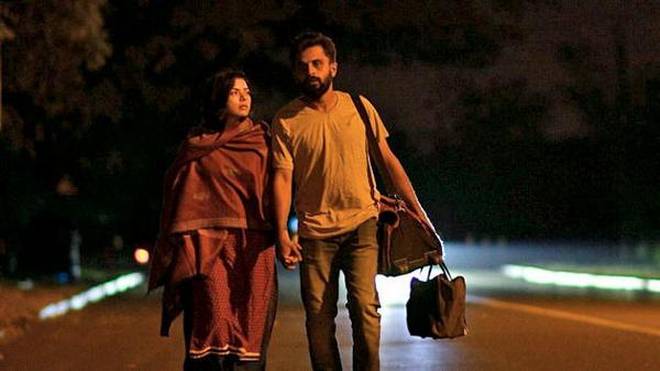
What was your job in Saudi Arabia?
I was an administrator in a construction company [laughs] Not law, not filmmaking or anything that I had studied, but it was peaceful — I had an AC cabin, comfortable living, and steady a paycheque. I was feeling better. Soon I started writing a blog which also became a source of little happiness. I thought I could bring my family, too, and settle down. I uploaded the short films that I had made back in 2000 on the blog. It garnered some attention, and people started talking to me about films, poking me with questions like why don't I go back and make films, almost as if pushing me to quit my job.
Then one day I met Manikantan, who asked me if I could make a film on his script. He was willing to fund it along with his friends. That was a good enough offer and I decided to quit the job and go back to Kerala to make the film. It was called Parole. Back in Kerala, after this film, things again became dull and nothing seemed to move. I started doing some translation work to sustain myself and I wrote about 8-9 scripts in this period between 2008 and 2012, but I could not find anyone to fund any of it. Then in 2012, one guy approached me to make another short film with him as the central character. He had some money, so I wrote a script for him and sent it over, and once he read it, he quit; he did not like it at all [laughs, then turns serious]. It was a very frantic time. I was trying to do a lot of things, hoping that something would work out. But I wanted to work on the script that I had written, so I contacted some friends and shared it, almost begging them for help, and they did. With a fund of forty thousand we made this short film called Frog. It turned out well, and I received the Kerala State Award for the film. That was the turning point; people started recognizing me, and they started to offer help if I wanted to make films. This was the starting for Oralpokkam (first feature) which became a big project, again crowd-funded, and Shaji Matthew became the chief co-producer. The film managed a production budget of twenty five lakh rupees.
How did a filmmaker, who was struggling to impress people with his scripts, end up meeting Shaji Matthew? Was it the internet that facilitated it, or was it some other connection?
The internet is one medium, but people like Shaji Matthew are not that well connected with it. There is another network, one that we do not see, which is the network of people. Which is to say that people talk to each other, about someone whose work they appreciate. I will talk about my friend if I am confident of his work, and that conversation might lead to something. Such conversations happen within these networks, and I think that was how I got in touch with Shaji Matthew. I believe that this network is much more powerful than the internet. Internet disseminates information faster, but it is not concrete; people start doubting you sooner on the internet, but the other network is where people really endorse you, and once you start getting these endorsements, people start jumping at you.

So Oralpokkam happened, followed by Ozhivudivasa the Kali, and now Sexy Durga. I have seen all three of them, and I have realised that your camera, which was earlier more still, with fixed frames, now seems to have become a living entity with a mind of its own. What was the evolutionary process behind it? Was it conscious?
Actually, I don't understand what I am going through exactly, but all I can say is that I am trying to totally diminish the technicalities of filmmaking. I am trying to make films just like writing something, you know, with my pen. I am consciously trying to reduce the number of people on set, reduce the budget that is needed for a film — minimize everything. I am trying to look at things just the way I would look through my own eyes, and hear them the way I would hear them from my own ears. That perhaps eliminates some kind of cinematic elements, so to speak, but at the same time, I think I am increasingly able to capture more organic life. I understand that due to the technicalities of the machinery, the process tends to lose its organic character, therefore reducing it, controlling it or eliminating it completely will help in communicating it the way I want to. That could be the reason for what you refer to as evolution, maybe, I don't know.
I wish to know how do you perceive God. What does the word mean to you?
I was a Hindu, and I grew up in a family of believers. At some point, however, I started shunning the religious mindset, and I am an atheist now, but the word ‘God' is not bad if you can see it in a wider context. As an idea it is good, because it reduces the importance of self. When we say that there is no God, we are giving importance to ourselves as individuals, and that diminishes the importance of people around us. Not just people, but other living beings, nature itself. We continue to increase the importance of our self, our demands, personal gains, etc. But if we assume that there is something more important than us, which is more powerful and in control of everything, including us, then that helps us remain humble. In that sense, I like the concept of God. But what is happening is that people are increasingly giving more importance to something material, which is more powerful and more selfish than us, and this worship of the idol may not be good. As concepts they are all fine, whether it is Rama, Allah or Christ, or whatever they are called. There is a point when these idols attain gravity, and when we start giving importance to that gravity, that is certainly not God. That, in my opinion, is a power factor, and people want this power to control everything else. My understanding of God is that it is not a controlling power factor, but something that is compassionate.

As a filmmaker you are also aware of the power of representation. How does cinema effect this concept of God and its representation? What role does it play?
It is almost like reflecting from a mirror, not necessarily representing. Maybe reflecting with a tint of your opinion. It is definitely not a plain mirror which could show things the way they are because they are filtered through the filmmaker's gaze. It may not be true, it may be only a point of view. Forget about God, if there is anything that you look at and if you want to show it to someone, not necessarily by making a film but even otherwise, then too, you first find it, observe it and form an opinion about it, only then can you call someone and say, ‘oh look at that'. The same happens with cinema. You have an opinion about something, about life, and you think that you have a different angle to look at it, only then do you start looking at it, shooting it making it into something visually viable and then show it to somebody. This reflection can also be negatively biased, but fortunately there is not just one filmmaker or just one artist. There are many who are looking at the same subject from different viewpoints with different opinions, so collectively we can make an image or a representation which is actually true, or maybe near to true. So I don't think you can trust a single artist of a filmmaker, but perhaps collectively you can. That is why we need more artists and there must be all kinds of voices, all versions. Then only we might be able to come closer to the truth.
You speak of reality and also of different perspectives. Are you consciously aware of the reality and the perception that you carry? Are there any divergences, and how do you go ahead when you might be aware of the two being different?
We are just human beings; we have bones, flesh and blood, our own problems, and preferences. Based on your perception and opinions, you will be looking not only outside, but inside as well if you are conscious. A lot of processing goes on in between; even though sometimes I feel that my opinion is correct, I try to critique myself and remain open to the possibility of there being another side. I think every artist is bound to go through it, except perhaps those tied to commercial projects who only try to appease a certain group. We are not making something to appease any particular group. I make films to first of all impress myself, primarily because I want to find that which has not been found so far, which is new, which is refreshing and gives me a new outlook. That I believe is there, and it only comes if you are willing to criticise yourself, and stay from yourself as you are. There is a conflict as individuals, as members of a society and as artists. I may have an aversion to something, someone — a political party, for instance — but then the artist in me laughs at me for claiming to be an artist and yet harbouring such biases. I think that it is specific not just to me; every artist is going through it.
This is a more specific question directed towards your recent film. When you named it ‘Sexy Durga', I am sure you were aware of the repercussions. Was it a calculated decision? Because to be honest, the film could have had any other name, since it does not have anything to do with Durga.
It would be wrong to say that it has nothing to do with Durga, it may not have anything to do with Goddess Durga though. Durga is a female character, even the goddess is a female character. You sacrifice everything to the goddess in the name of worship, but at the same time, if you find a real Durga in flesh and blood on the street, what would be your reaction? Would you fall to her feet and chant? [laughs] It is not like that. Actually, this concept of Durga or God is only used for establishing power and manipulating people. It is not meant to help someone. It only helps in oppressing others; it does not help the society to love and live in peace. It is all about war, violence and fear. When you say that there is God, that God is there to always curse you, She or He may control you. The powers that be want to impose bans, they want to denounce certain practices or ideas as sacrilege or corrupt with the help of such control. In Christianity, God is forgiving and compassionate, but in Hinduism, Islam and perhaps every other culture, God is there to curse you, to punish you. That kind of representation of God is not beneficial to the society.
When I started filming, the first instinct was to name it ‘Durga', of course with reference to the Goddess, but I knew that it had nothing to do with her. When I went to shoot the ritual you see in the opening of the film, I felt that ‘Sexy Durga' was more appropriate. People did advise me not to do that since it would create a lot of controversy, but I genuinely feel that controversy is also a kind of conversation, albeit more powerful and pointed. It spreads the message fast. It may be harmful, but if you are not using your film for obvious propaganda, or ill-intention, you should go ahead with it. So I was very sure of what I was doing. I could have avoided the name, but then it would have been a slave film, and I don't want to make slave films. It needs to make conversations, repercussions. What is the purpose of making a film that remains silent?

The film opens with a ritual of people poking themselves with steel, hanging themselves from hooks; there is incense and music. It is terrifying to look at, but what was your perception of it? Do you think that men need God to also prove and demonstrate strength? Because if you remove God, the ritual does not exist.
The visual is also trying to communicate something else. These people are vegetarians, they practice non-violence, abstain from sex for about 41 days, there is a kind of sacrifice too, but the irony is that all of it works in such a violent way. The ritual is not so much to display strength as it is to show devotion, that you can even offer your life. But this ritual must have started a few hundred years ago, when perhaps only a few people would witness it at some temple hidden away from the public. But now as you see, the ritual starts at a temple and travels all the way through a busy highway, and these people hang with the help of hooks from a vehicle, and people watch from both the sides of the road. Certainly this was not the original intended approach. It has evolved from being a symbol of devotion to an act of exhibitionism. It came in with the advent of the modern age and how people felt the need to show off. I think sometimes we also need something to hold on to. This temple is called Mutthumariamman. These temples came into prominence when smallpox was rampant; people needed something to hold on to as smallpox was wiping out entire villages. So at that time perhaps, people used the ritual to show compassion and devotion where they were willing to sacrifice themselves for the sake of the village. That is a kind of non-violent violence. Then smallpox got eradicated but the ritual stayed, so in the absence of the disease, the ritual became a spectacle.
The film starts with the ritual and then immediately turns around when the two central characters, Kabir and Durga try to flee. They are devoid of all kinds of rituals. Was that completely planned, or is there an element of organic evolution there?
Actually, I planned it in such a way that it could be read in either way. The characters may have nothing to do with the ritual, or maybe they are trying to escape the entanglement of the religious setup — there are possibilities that I wanted to keep alive. When a filmmaker dies, the interesting thing is that his/her film starts talking. [laughs hard] Unless he is dead, people will ask him questions, the answers to which can limit what they can glean on their own from the film. It is, therefore, better if I don't close it down [laughs and does not want to say anything on this further].


